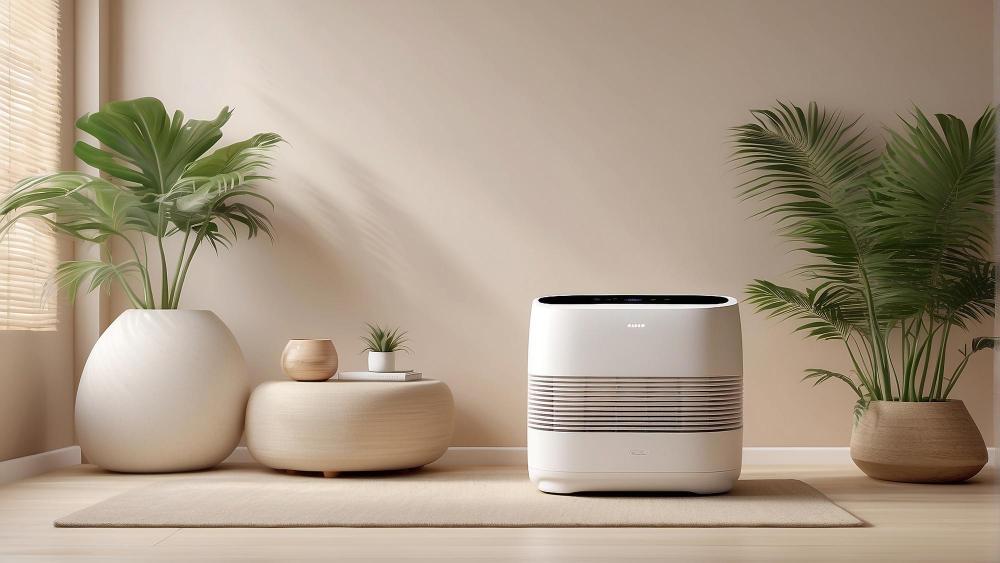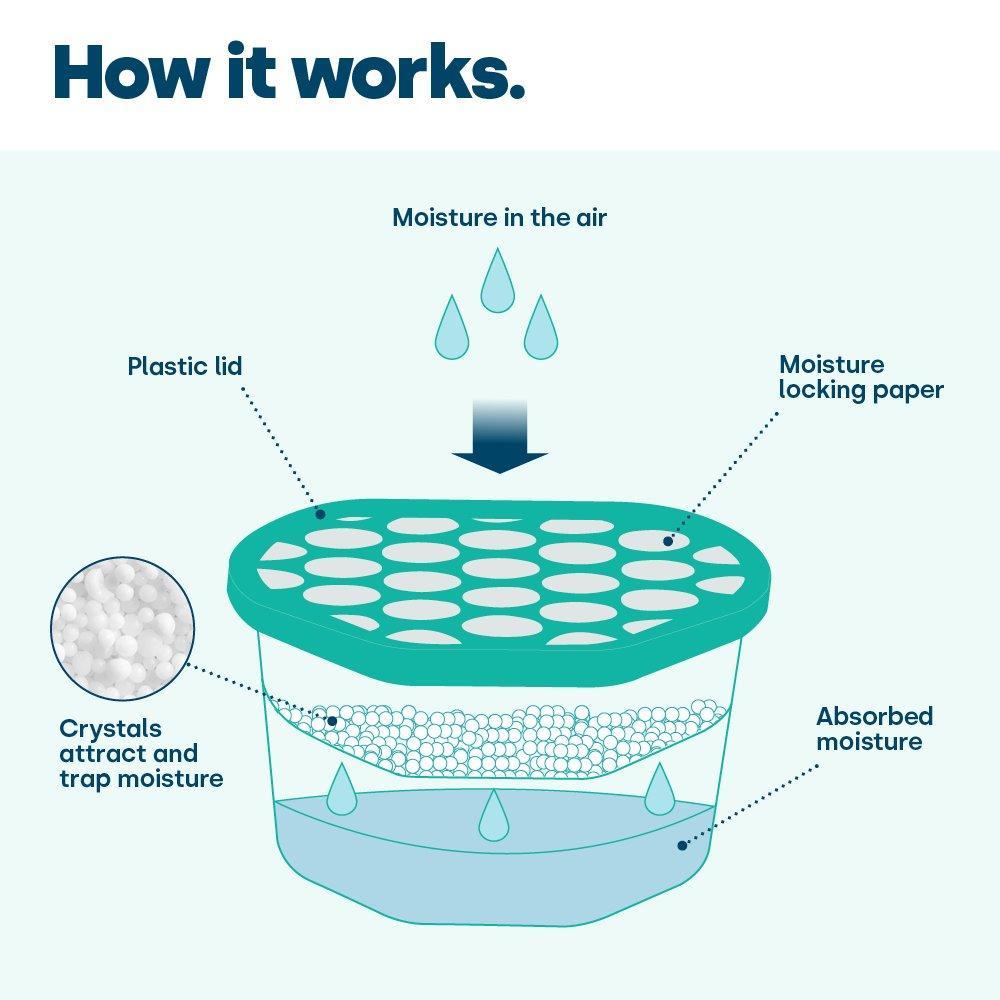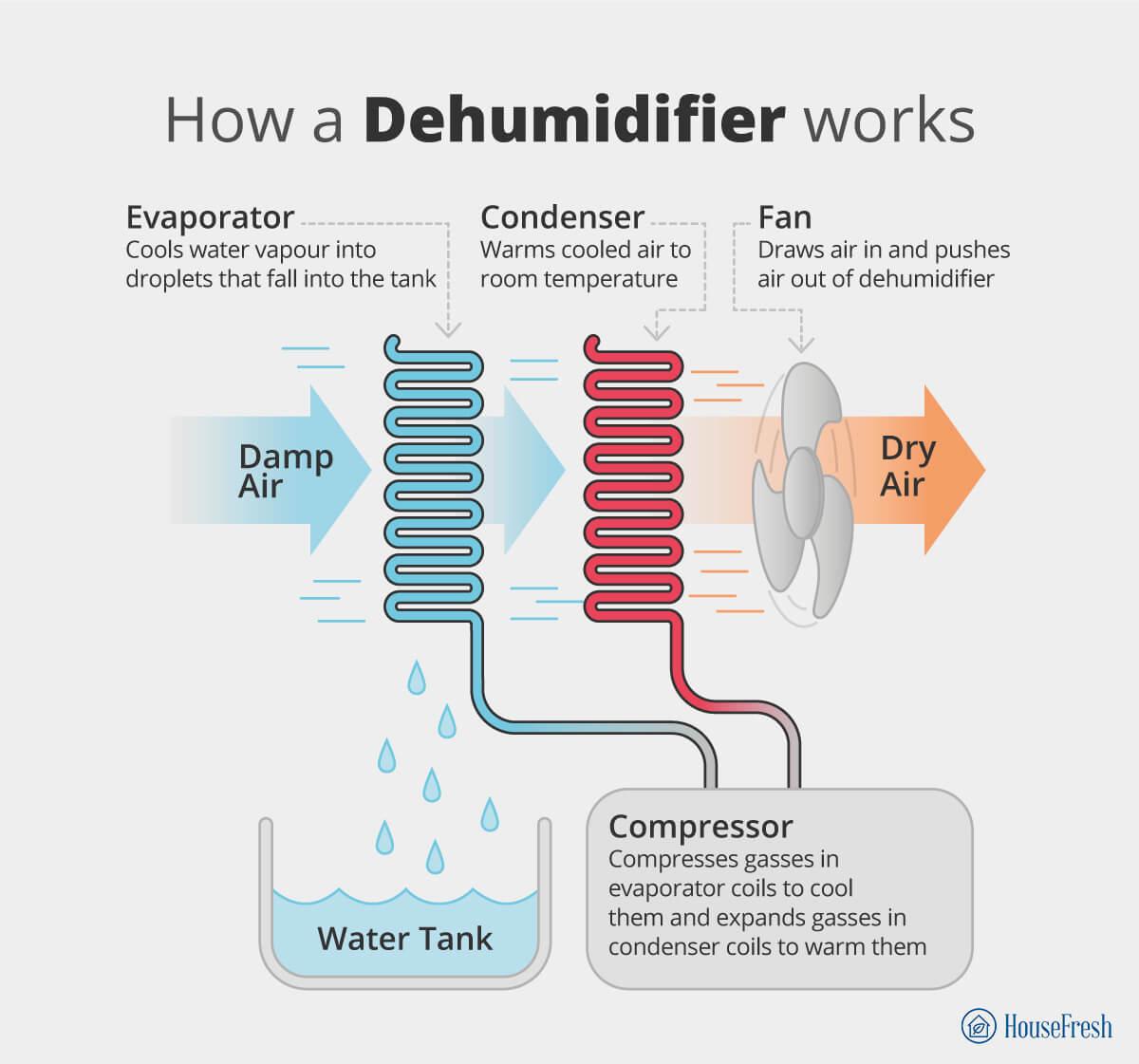


Table of Contents
- Introduction
- What Does a Dehumidifier Do?
- Dehumidifier Uses and Health Benefits
- How a Dehumidifier Works
- Signs You May Need a Dehumidifier
- Potential Side Effects of Using a Dehumidifier
- Where Are Dehumidifiers Needed in India?
- Conclusion
- Faq's
Introduction
Dehumidifiers are essential appliances for maintaining indoor air quality, especially in areas with high humidity. They help regulate humidity levels, prevent mold growth, and improve overall comfort. But their benefits go beyond just comfort, they also have significant health implications, especially for individuals with allergies or respiratory issues. In this article, we'll explore how dehumidifiers work, their health benefits, potential side effects, and signs that indicate you might need one.
 Dehumidifier
Dehumidifier
What Does a Dehumidifier Do?
A dehumidifier works by drawing in moist air, removing excess moisture, and releasing drier air back into your space. By maintaining optimal humidity levels (30-50%), it creates a more comfortable and healthier indoor environment.
 What Does A Dehumidifier Do
What Does A Dehumidifier Do
Dehumidifier Uses and Health Benefits
1. Prevents Mold and Mildew:
High humidity levels create a breeding ground for mold and mildew, which can damage your home and pose health risks. Dehumidifiers reduce moisture, preventing their growth.
2. Reduces Allergy Symptoms:
By minimizing mold, dust mites, and allergens that thrive in moist conditions, dehumidifiers help reduce allergy symptoms like sneezing, coughing, and skin irritation.
3. Improves Air Quality:
Excess moisture can lead to musty odors and dampness. Dehumidifiers eliminate these issues, making the air fresher and more breathable.
4. Protects Your Belongings:
Wooden furniture, books, and electronics can suffer from warping or damage due to humidity. A dehumidifier safeguards these items by keeping moisture at bay.
5. Boosts Comfort Levels:
High humidity can make your space feel hotter and stickier. A dehumidifier removes excess moisture, enhancing comfort, especially during the summer.
How a Dehumidifier Works
Dehumidifiers operate using the following process:
- Air Intake: The appliance pulls in humid air from the room.
- Cooling Coils: The air passes over cooling coils, where moisture condenses into water droplets.
- Water Collection: The water is collected in a tank or drained through a hose.
- Air Release: The appliance releases drier, fresher air back into the space.
 Dehumidifier - How does it work?
Dehumidifier - How does it work?
Signs You May Need a Dehumidifier
- Allergy Flare-Ups: Increased allergy symptoms may result from mold and dust mites in humid conditions.
- Condensation on Windows: Persistent foggy windows indicate high humidity levels.
- Musty Odors: A damp or musty smell in your home is a sign of excessive moisture.
- Mold Growth: Visible mold on walls, ceilings, or furniture suggests the need for a dehumidifier.
- Warping Furniture: Wood furniture or flooring that feels warped or swollen could benefit from humidity control.
Potential Side Effects of Using a Dehumidifier
- Overly Dry Air: Running a dehumidifier too long can make the air too dry, causing dry skin, throat irritation, or respiratory discomfort.
- Increased Energy Costs: Regular use of a dehumidifier may lead to higher electricity bills.
- Maintenance Issues: Without regular cleaning, the appliance can become a breeding ground for bacteria or mold.
Where Are Dehumidifiers Needed in India?
Dehumidifiers are particularly useful in regions of India with high humidity levels, such as coastal cities like Mumbai, Chennai, Kolkata, and Kochi, where moisture in the air is consistently high due to proximity to the sea. These devices are also essential during monsoon seasons across the country, as excessive rainfall often leads to dampness, mold growth, and musty odors in homes. Additionally, they are beneficial in areas with poor ventilation, such as basements, storage rooms, or high-rise apartments, where moisture tends to accumulate. For people living in regions like Assam and Meghalaya, known for their heavy rainfall and humid climate, dehumidifiers can play a crucial role in maintaining a healthier indoor environment. Offices, museums, libraries, and warehouses that store sensitive items like books, artworks, or electronics also often require dehumidifiers to protect their contents from damage caused by excess humidity.
 Humidity Levels in India
Humidity Levels in India
Conclusion
A dehumidifier is a valuable tool for improving indoor air quality and health, particularly in humid environments. By reducing moisture levels, it helps prevent mold, alleviates allergy symptoms, and protects your home and belongings. However, it's essential to use it wisely to avoid overly dry air and increased energy costs. If you notice signs of high humidity, investing in a dehumidifier could significantly enhance your living environment.
 Climate Zones in India
Climate Zones in India
explore further
Latest from Did you know?
More from Interactions
Resources
Dwello, for every home buyer, is a way to go from 'I feel' to 'I know', at no extra cost.


